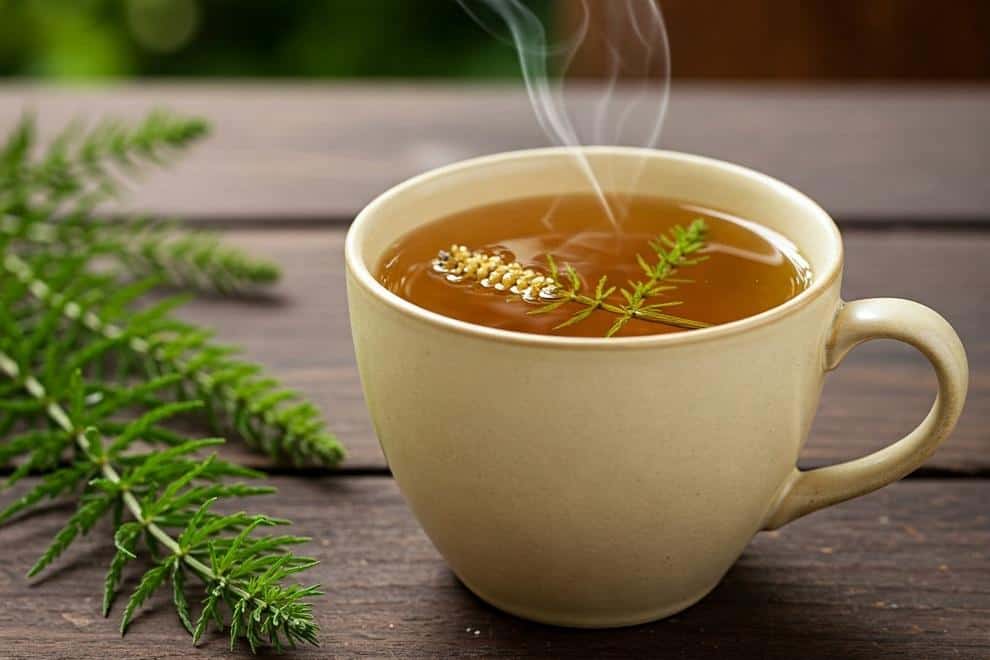Benefits of horsetail: properties and uses
Horsetail (Equisetum arvense) is a powerful medicinal plant used for centuries in traditional medicine. Rich in minerals like silicon, potassium, and flavonoids, it is especially valued for its diuretic, remineralizing, and antioxidant properties. This versatile herb is commonly used to support bone strength, hair and nail growth, and urinary tract health—making it an excellent natural supplement for overall wellness.
🌿 Nutritional Power of Horsetail
The therapeutic effects of horsetail are rooted in its rich composition of essential nutrients:
- Silicon: Strengthens bones, nails, hair, and connective tissues. It’s one of the few plants that contain this mineral in such high concentration.
- Flavonoids: Natural antioxidants that fight cellular aging and oxidative stress.
- Potassium: Supports fluid balance, detoxification, and proper muscle function.
- Saponins: Anti-inflammatory and diuretic compounds that assist in removing excess water from the body.
🌟 Key Benefits of Horsetail
1. Supports Bone Health
Due to its high silicon content, horsetail helps increase bone density and flexibility. It promotes calcium absorption and collagen production, making it beneficial in preventing osteoporosis and aiding in post-fracture recovery.
2. Powerful Diuretic
Horsetail is one of nature’s most effective diuretics. It increases urine production, helping the body eliminate toxins, reduce water retention, and prevent urinary tract infections (UTIs).
3. Strengthens Hair and Nails
Its high silicon levels support keratin production, making hair stronger, shinier, and less prone to breakage. Nails become less brittle and grow faster, making horsetail a favorite ingredient in many natural beauty treatments.
4. Improves Skin Appearance
Thanks to its antioxidant and anti-inflammatory compounds, horsetail promotes cell regeneration, reduces inflammation, and boosts collagen synthesis. It helps the skin look firmer, smoother, and more youthful.
5. May Support Weight Loss
Its draining and detoxifying properties make horsetail a helpful companion during weight-loss journeys. It reduces bloating and may contribute to temporary reductions in body volume when used alongside a healthy diet and exercise.
💡 Additional Uses of Horsetail
- Joint Pain Relief: The anti-inflammatory compounds may help reduce minor joint aches and stiffness.
- Tissue Recovery: Enhances regeneration of connective tissues after injuries or intense workouts.
- Oral Health: Traditionally used as a natural mouth rinse to soothe inflamed gums or ulcers.
☕ How to Use Horsetail
- Tea/Infusion: Steep dried horsetail leaves in hot water for 5–10 minutes. Limit to 2–3 cups daily, and avoid continuous use beyond 3 weeks without a break.
- Capsules or Extracts: Convenient for consistent dosing. Always follow label instructions or consult a healthcare provider.
- Topical Products: Found in natural shampoos, lotions, and creams aimed at improving hair, scalp, or skin health.
⚠️ Precautions & Side Effects
Though horsetail is natural, it must be used wisely:
- Not suitable for people with kidney disease due to its diuretic nature.
- Pregnant or breastfeeding women should consult a doctor before use.
- Long-term or excessive intake may lead to potassium loss, causing weakness or cramps.
- Avoid combining with pharmaceutical diuretics, as it may lead to electrolyte imbalance.
🔬 What Does Science Say?
Preliminary studies support horsetail’s remineralizing and antioxidant effects, especially related to silicon bioavailability. However, more clinical research is needed to confirm its long-term impact. As with many herbal remedies, it is most effective when combined with healthy lifestyle choices and balanced nutrition.
✅ Final Thoughts
Horsetail is a time-tested herbal ally with a wide range of benefits—from bone and joint support to hair, nail, skin, and urinary health. Whether consumed as tea, taken as a supplement, or applied topically, it can be a valuable addition to your natural wellness routine.
Use it in moderation, follow recommended guidelines, and always consult a health professional before starting any new herbal regimen—especially if you have existing health conditions or take medications.




